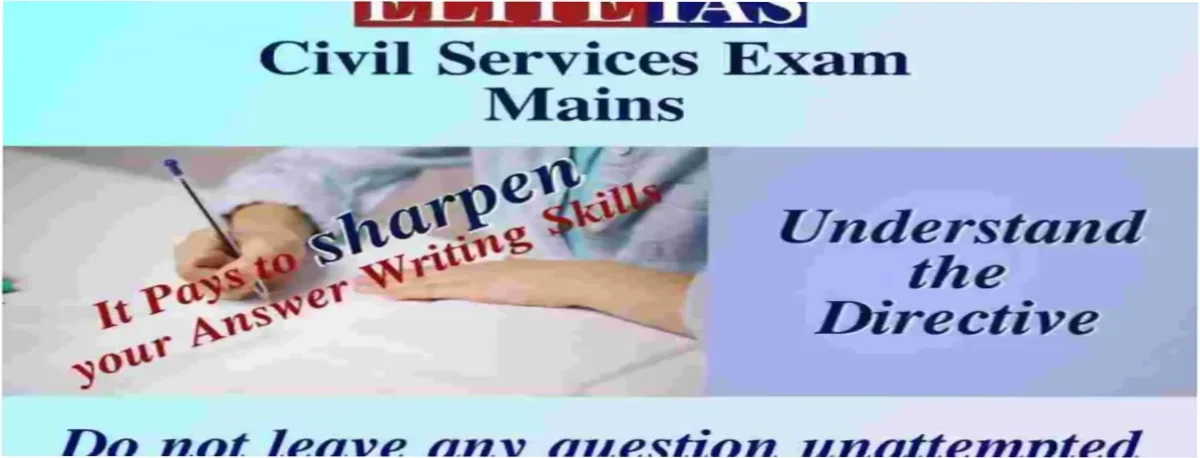Preparing for the IAS Exam
requires reading, studying and retaining to a great extent, specifically when it comes to prepare for the Mains. The Mains Papers for the Civil Services Exam require a lot of study and preparation for the theoretical subjects.
The kind of length UPSC syllabus for the Civil Services Exam extends to, is noticeably obvious to all concerned. All focusing on the preparation for the IAS Exam (by some means or another), be they the IAS aspirants or the faculty members, are quite well aware of the complexities involved in studying and preparing for the theoretical subjects.
Tips to Learn and Retain Your Knowledge
Studying a subject theoretically often gets tedious while preparing for the IAS Exam. You have to put in long hours. Keeping the distractions at bay often results in sacrificing talking to friends on phone, watching movies, going for shopping, visiting your near and dear ones, enjoying your favorite street food with the people you are fond of, and what not! And it further adds to the boredom of preparing for the Papers, studying chapter after chapter.
Here are a few tips to help you not only learn, but also retain for more than usual spans of time, whatever information you have gained while preparing for a theoretical subject.
The tips are flawlessly competent and will see to it that your preparation for the IAS Exam goes great guns!
- It’s the concept and not the words that matters: Acing a theoretical subject often requires getting to the concept at the core. You might have read the entire text more than 15 times, but if you fail to understand the basic key concept, the entire exercise is simply going to be futile.
- Beware of the rote learning: Though rote learning has been one of the traditional methods to prepare for the exams, it can’t be considered suitable to prepare for the IAS Exam. Though the memorization technique known as rote learning makes use of repetition (hence helping to remember what you have learnt) for longer spans of time, it’s advisable that you opt for more meaningful techniques.
Thus, it would be advisable to focus on the “why(s)?” and “how(s)?” rather than repeating something endlessly. Besides, a scientific approach helps you understand the concept better.
- It’s not what the content reveals, but what you have understood that matters more: The books or whatever content that lies open on your study table might reveal a lot. But how much you have understood? And what is it that you have understood? Besides, it will help you balance your answers, sharpening your answer skills when you face the Mains Papers in the IAS Exam.
Your answering skills need to be sharpened, reflecting a balanced perspective. And from where are you going to gain the same if you do not understand the concept well. It should not be forgotten that it’s not the writer(s) of the book(s) (you had been reading for the preparation for the IAS Exam) who is going to face the Exam, but you. So, it’s your understanding of the content that matters rather than what the author of the book says.
- Bring up the topic with the faculty members: In case, you find yourself confused and it gets tedious to understand the basic key concepts, you should seek the help of the faculty members. An experienced faculty member can usually reiterate the text you have been reading in a manner so that all your doubts are solved and queries well answered, thereby making it easy for you to prepare the theoretical subjects for the IAS Exam.
- Do not limit the learning process to reading the text alone: Going beyond the books that you read really helps. It’s advisable to look for:
- YouTube videos,
- interactive charts,
- academic papers,
- graphs,
- photographs, etc.
Apart from what has been listed above, if you search the Internet skillfully, you would also come across:
- learning sites,
- online tests,
- test preparation material,
- Innovative learning guides etc.
But, it’s wiser not to forget that you do not have the time to read all that lies at your disposal. Besides, the syllabus that UPSC prescribes for the CSE is already vast enough. So, it’s best to make a selective reading.
2. Take a keen interest into what you study:
- Opt for the visualizing analogies: If you find theory boring, infuse life into it by means of:
- flowcharts,
- graphs,
- diagrams,
- bulleted lists,
- highlights etc.
Making use of the visualizing analogies helps to retain what all you have been studying for considerably longer spans of time.
- Take down notes: Taking down brief, but relevant notes for all you have been reading proves to be considerably helpful in your preparation for the IAS Exam. The very practice of writing in your own words helps synchronize the brain and hand of the writer. Besides, when you recall information writing it down in your own words in a given frame of time, your time managements skills are also enhanced. And that will definitely help you when it comes to face the IAS Exam.
- Revise: You might study as hard as possible, but it’s going to be useless if you can’t recall what you have been studying when it actually comes to facing the IAS Exam. Thus, try to recall what you have been studying a few hours or a day earlier. If you feel that you do not remember all the details as you should have, make a through revision.
Besides, it’s wiser to keep a provision for making revisions in your time schedule and follow the same. The more you revise, the greater is the probability that you would be able to recall all the required details when it actually comes to do so during the IAS Exam.
- Employ Feynman Method: Richard P Feynman, the well-known physicist has also been known for his great ability for explaining even the most complex theoretical Physics concepts to the laymen. Though all cannot be Feynman, it’s desirable to employ the Feynman method while you study the theoretical subjects in order to prepare for the IAS Exam. The method involves explaining all you have learned to yourself/an imaginary listener or somebody else (if he is willing to spare the time) in the simplest possible terms.
And if the exercise witnesses you fall a prey to jargon, then you probably have not understood the entire concept yourself. Thus, you need to find and work on the problem areas.
- Group Study
Study your lesson individually and discuss it with your peers, specifically if you are an auditory learner. You can schedule some of the time for the group study. If one of your acquaintances has understood the concept better than you have done, he may help you grasp a better understanding of the subject. You may also make use of the Feynman Method while practicing group study.
- Use Method of Loci/The Mind Palace Technique: Would you not like to have a memory as sharp as BBC’s Sherlock? He uses the famous Mind Palace Technique. Also known as the Method of Loci, the technique has been made use of since the Greeko-Roman times. It’s a mnemonic system that mentally associates the items that you would like to remember with particular physical locations. The technique employs memorizing the spatial co-relativity with specific locations, e.g., the route you used to take for reaching your college etc.
The methods and the techniques described above would be of considerable use to you when it comes to prepare the theoretical subjects for the IAS Exam. You would discover for yourself that not only has your understanding of the subjects improved considerably, but you can retain the knowledge gained in memory also for much longer spans of time.
Relevant Articles to Read:
- Tips on How to Read the Newspaper(s) for the Preparation of the IAS Exam
- Online coaching for UPSC
- Which books for IAS Exam Preparation and How to Study for IAS?
- Why Sociology is a Good Optional Subject for Civil Services Exam?
- 25 Best IAS Interview Question and Answers
- IAS INTERVIEW GUIDANCE
- Fees Structure for IAS Coaching in Delhi
- UPSC Syllabus 2020 for Prelims, Mains and Interview



